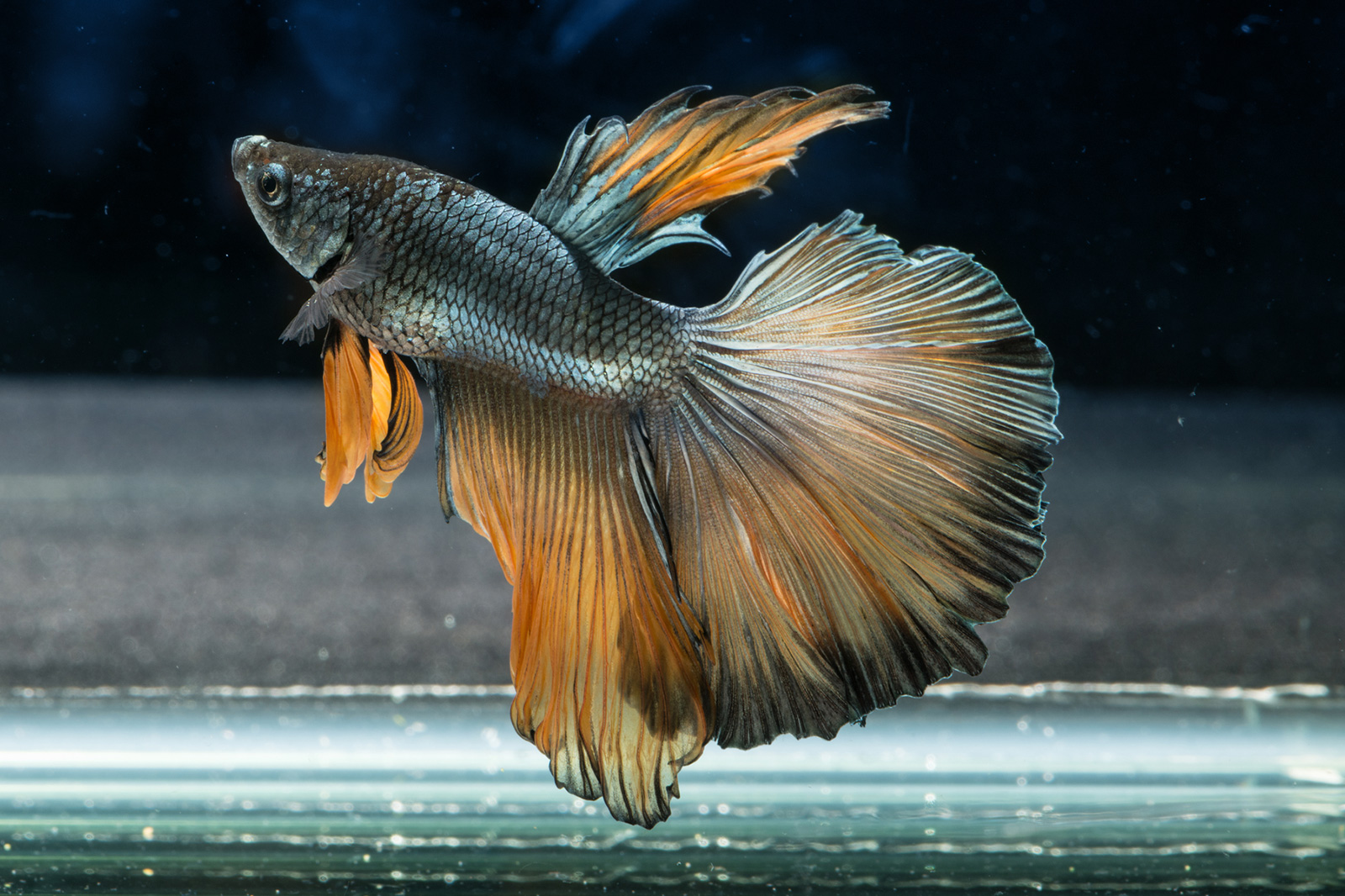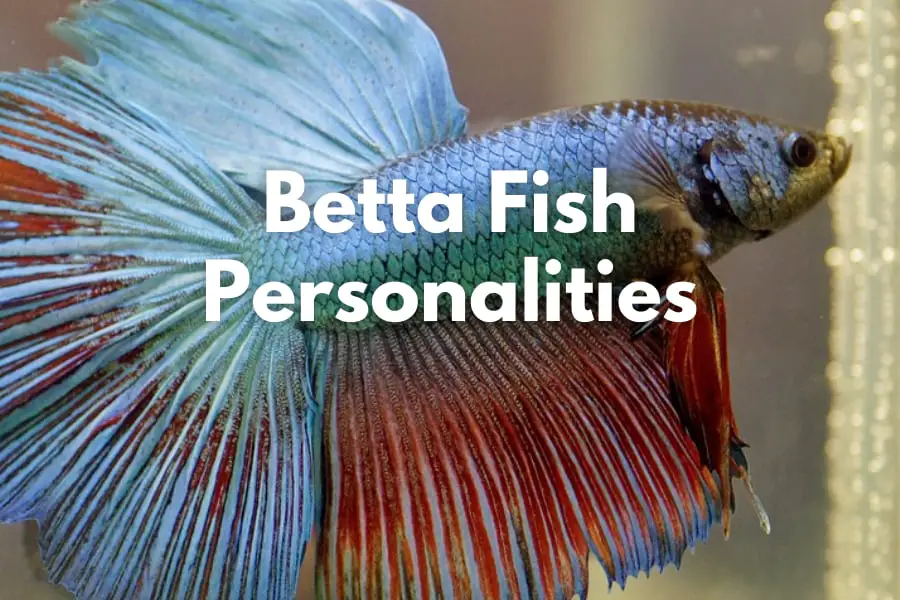Betta fish are one of the most popular and fascinating fish species in the world. They have a unique personality and are known for their stunning colors and long, flowing fins. However, understanding and appreciating their personality can be a challenge for many fish enthusiasts.
To truly understand and appreciate the personality of betta fish, it is important to take a closer look at their behavior, communication, and social interaction. From their aggressive nature to their curious and playful demeanor, betta fish have a personality that is both complex and intriguing. In this article, we will explore the different aspects of betta fish personality and how you can better appreciate and care for these captivating creatures.
Betta fish are known for their unique personalities. They are highly intelligent, curious and active creatures that can make great pets. It’s important to understand their behavior and provide them with a suitable environment to thrive. Betta fish love to explore their surroundings, so adding plants and decorations to their tank can keep them engaged. Observing their behavior can help you appreciate their individual personalities and provide a fulfilling home for them.

Understanding and Appreciating Betta Fish Personality
Betta fish, also known as Siamese fighting fish, are some of the most visually stunning and captivating fish to keep as pets. But beyond their vibrant colors and flowing fins, betta fish are also known for their unique personalities. In this article, we will dive into the world of betta fish personality and how to appreciate and understand these fascinating creatures.
1. Betta Fish Personality Traits
Betta fish are known to be curious and active swimmers, always exploring their surroundings and interacting with their environment. They are also fiercely territorial, which is why they are often kept alone in their own tanks to prevent aggression towards other fish.
Betta fish are also intelligent creatures, and have been known to recognize their owners and even learn tricks like jumping through hoops or pushing a ball. They are also known for their ability to communicate with their owners through body language, such as flaring their fins or displaying aggression.
To fully appreciate betta fish personality, it’s important to understand their natural behaviors and tendencies. Betta fish are native to Southeast Asia and are used to living in shallow waters with lots of plants and hiding spaces. Mimicking this environment in their tanks can help bring out their natural behaviors and allow their personalities to shine.
2. Benefits of Understanding Betta Fish Personality
Understanding betta fish personality can have several benefits for both you and your fish. First and foremost, it can help you provide better care for your betta by understanding their needs and preferences. For example, if you notice your betta fish is hiding more than usual, it may be a sign that they need more hiding spaces in their tank.
Understanding your betta fish’s personality can also make for a more enjoyable and rewarding pet ownership experience. By recognizing their unique quirks and behaviors, you can better appreciate their individuality and form a stronger bond with your fish.
3. Betta Fish vs Other Fish
One of the main things that sets betta fish apart from other fish is their territorial nature. Betta fish are not suitable for community tanks, as they will often become aggressive towards other fish, including other bettas.
On the other hand, some other popular aquarium fish like goldfish or tetras are social creatures that thrive in groups. It’s important to research the specific needs and behaviors of any fish species before adding them to your tank, to ensure they are compatible with your betta fish.
4. Betta Fish vs Other Pets
Betta fish are often considered a low-maintenance pet, as they require less space and upkeep compared to other pets like dogs or cats. However, they still require proper care and attention to thrive.
One advantage of betta fish over other pets is that they are quieter and less disruptive. They also don’t require as much physical interaction, making them a good choice for people with busy schedules or who prefer a more hands-off pet ownership experience.
5. Setting up the Ideal Betta Fish Tank
To bring out your betta fish’s personality, it’s important to set up their tank properly. Betta fish prefer warm, clean water with plenty of hiding spaces and plants to explore.
A tank size of at least 5 gallons is recommended, with a filter and heater to maintain water quality and temperature. Adding decorations like rocks, caves, and plants can create a stimulating environment for your betta fish to explore and display their natural behaviors.
6. Feeding Your Betta Fish
Feeding your betta fish a balanced diet is essential for their health and wellbeing. Betta fish are carnivores and prefer protein-rich foods like bloodworms, brine shrimp, and other small insects.
It’s important to feed your betta fish the right amount of food, as overfeeding can lead to health problems like constipation and swim bladder issues. A good rule of thumb is to feed your betta fish small amounts twice a day, removing any uneaten food after a few minutes.
7. Monitoring Your Betta Fish’s Health
Like any pet, it’s important to keep an eye on your betta fish’s health to catch any potential issues early on. Signs of a healthy betta fish include bright colors, active swimming, and a healthy appetite.
If you notice any changes in your betta fish’s behavior or appearance, it could be a sign of illness. Common health issues in betta fish include fin rot, swim bladder disease, and parasites. Regular water changes and tank maintenance can help prevent these issues from occurring.
8. Interacting with Your Betta Fish
Interacting with your betta fish can be a fun and rewarding experience. While they may not be as affectionate as other pets, betta fish can still recognize and respond to their owners.
One way to interact with your betta fish is through training. You can teach your betta fish to jump through hoops or push a ball by rewarding them with treats and praise. You can also play games with your betta fish, like moving your finger outside the tank and watching them follow it.
9. Conclusion
Betta fish are fascinating creatures with unique personalities and behaviors. By understanding and appreciating their individuality, you can provide better care for your betta fish and form a stronger bond with your pet.
From setting up the ideal tank to feeding and interacting with your betta fish, there are many ways to bring out the best in your pet. With proper care and attention, your betta fish can thrive and display their vibrant personality for years to come.
10. References
– Bettafish.org
– Fishkeepingworld.com
– The Spruce Pets
Frequently Asked Questions
Here are some common questions about understanding and appreciating betta fish personality.
What is the personality of a betta fish?
Betta fish are known for their distinct personalities. Some bettas are shy and prefer to hide in their tanks while others are more outgoing and enjoy interacting with their owners. Some bettas are even known to recognize their owners and will follow them around the room.
Understanding your betta’s personality can help you provide the best care for them. For example, if your betta is shy, you may want to provide more hiding spots in their tank. If your betta is more outgoing, you may want to spend more time interacting with them.
How can I bond with my betta fish?
Bonding with your betta fish can be a rewarding experience. One way to bond with your betta is through feeding. Betta fish are known to be enthusiastic eaters and will often come to the surface of their tank when it’s feeding time. You can also try playing with your betta by using a mirror to simulate another betta fish.
Another way to bond with your betta is by creating a comfortable environment for them. This can include providing hiding spots, plants, and decorations in their tank. Spending time near your betta’s tank and talking to them can also help them feel more comfortable around you.
Can betta fish recognize their owners?
Some betta fish are known to recognize their owners. This can be due to their strong sense of smell and sight. If you spend a lot of time near your betta’s tank and interact with them regularly, they may begin to associate you with positive experiences like feeding and playtime.
However, not all bettas will recognize their owners. It may take time and patience to build a bond with your betta and for them to recognize you as their owner.
Do betta fish have feelings?
While it’s difficult to say whether or not betta fish have emotions like humans do, they do have behaviors and physical responses that indicate they may experience some level of feelings. For example, bettas can become stressed if their tank is too small or if the water quality is poor. They may also become more active and excited when it’s feeding time.
Providing a comfortable and stimulating environment for your betta can help ensure they are happy and healthy. This can include providing a properly sized tank, regular water changes, and plenty of hiding spots and decorations.
What are some common betta fish behaviors?
Some common betta fish behaviors include flaring their fins, building bubble nests, and swimming in a zigzag pattern. Flaring their fins is a way for bettas to display dominance or aggression. Building bubble nests is a sign that a male betta is ready to mate. Swimming in a zigzag pattern is a way for bettas to show off their agility and speed.
Understanding these behaviors can help you better understand your betta’s personality and provide the best care for them. It’s important to note that not all bettas will exhibit these behaviors, and some may have their own unique quirks and personalities.

10 Signs of Happy Betta fish
In conclusion, understanding and appreciating the personality of Betta fish is essential for their optimal care and well-being. By observing their behavior, we can learn more about their individual traits and preferences, which can help us provide a stimulating and comfortable environment for them.
It is important to remember that Betta fish are not just simple pets, but living creatures with unique personalities. As pet owners, we have a responsibility to ensure that they are happy and healthy. By taking the time to understand their behavior and providing them with the proper care, we can develop a deeper connection with our Betta fish.
Overall, appreciating the personality of Betta fish can be a rewarding experience for both the pet and the owner. By creating a nurturing environment and building a bond with our fish, we can enjoy their company for years to come. So let’s take the time to learn about and appreciate the individuality of our beloved Betta fish.
